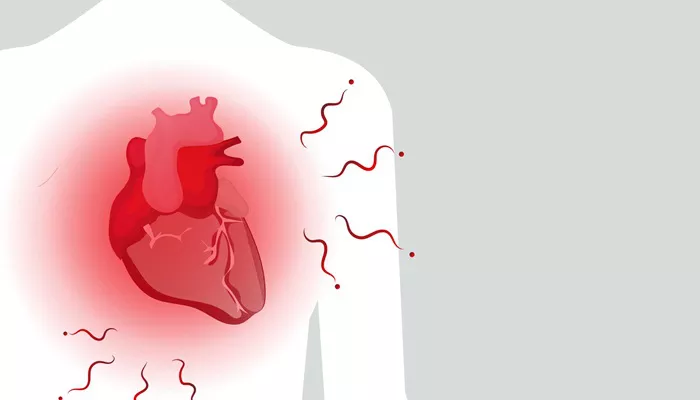Stockholm, Sweden — A new study suggests that a person’s genes may influence their risk of developing heart inflammation after receiving a COVID-19 mRNA vaccine. While such cases are rare, researchers have now found genetic variants that could explain why some individuals are more affected than others.
The study, led by Swedish scientists and published in the journal NPJ Vaccines, explores why a small number of people experience myocarditis or pericarditis — two types of heart inflammation — following COVID-19 vaccination.
Rare but Notable Side Effects
Since the introduction of COVID-19 vaccines, billions of doses have been administered worldwide. For most people, side effects are mild and temporary. However, a few recipients, particularly young males, have developed myocarditis (inflammation of the heart muscle) or pericarditis (inflammation of the heart’s outer lining) shortly after receiving mRNA vaccines like those made by Pfizer-BioNTech or Moderna. These cases typically occur within a week of the second dose.
Scientists believe these conditions are linked to the way the immune system responds to the vaccine, especially the spike protein, which helps the body recognize and fight the virus. Still, the exact cause of these rare reactions has remained unclear.
Genes May Hold the Answer
The Swedish study has identified certain gene variants that may increase the risk of heart inflammation after vaccination.
These genes appear to influence the body’s inflammatory response, suggesting a biological reason why only some people react this way.
Previous studies had already pointed to possible factors such as age, sex hormones, and underlying immune system conditions. But this is one of the first studies to focus on a genetic explanation.
A Path to Better Understanding
Although more research is needed to confirm the findings in larger populations, the study opens the door to personalized vaccine safety. It also offers a possible way to identify people at higher risk and better understand how the body reacts to vaccines.
These insights could help improve vaccine development and boost public trust in vaccination by addressing concerns over rare side effects.
The researchers emphasize that the overall risk of myocarditis or pericarditis after vaccination remains very low. The benefits of COVID-19 vaccines in preventing severe illness and saving lives continue to outweigh the risks.
Related topics:


